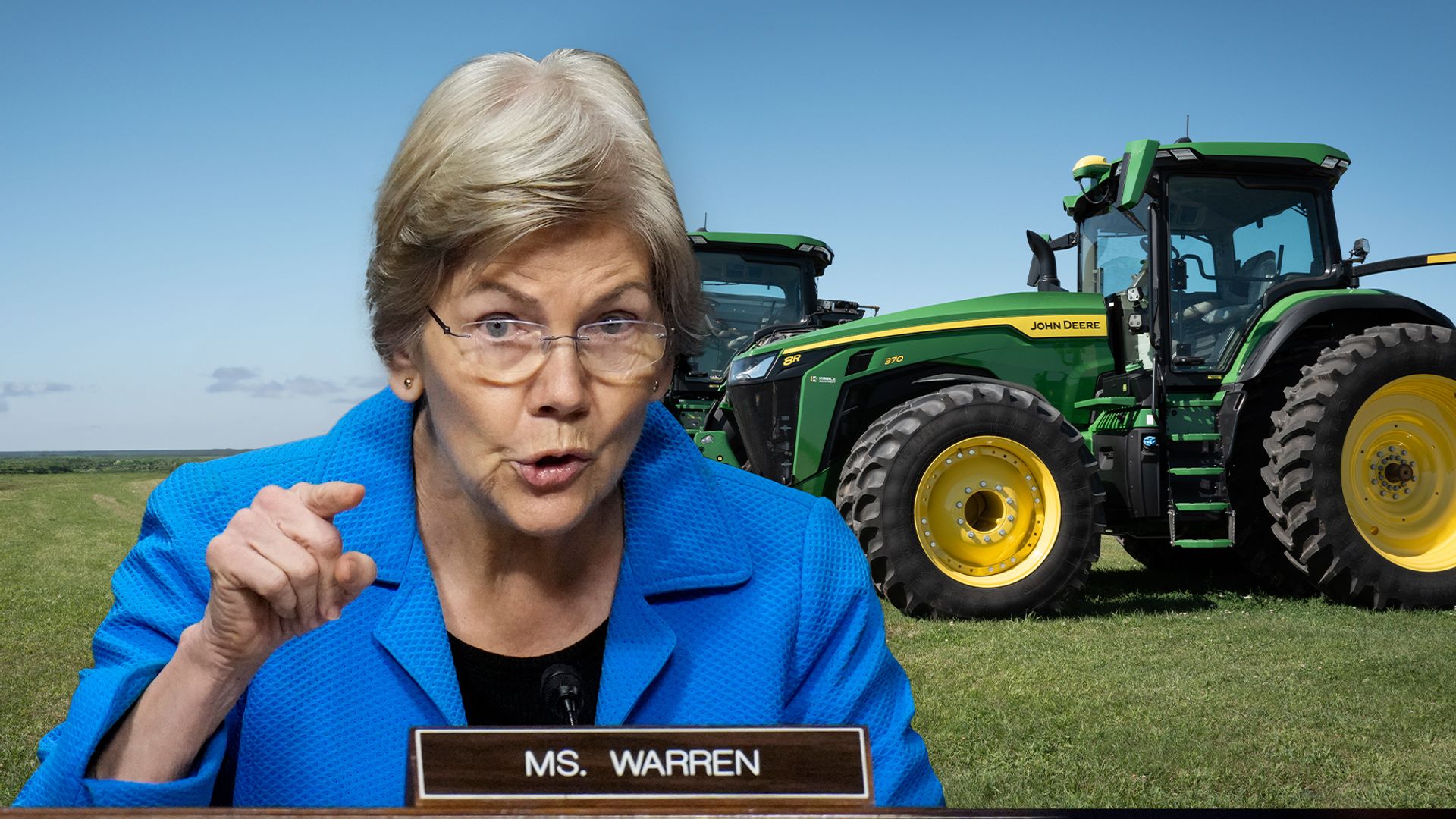
Simone Del Rosario:
John Deere has been a very reluctant participant in the right-to-repair movement, and now Sen. Elizabeth Warren says not only is the tractor giant violating repair rights, it could be violating the Clean Air Act.
A lot of people think about Apple when we talk about the right-to-repair debate. But Dedere is right up there with them. Deere’s equipment has become increasingly reliant on computer software. And for years, the company basically blocked owners and independent repair shops from getting what they needed to access and fix the equipment. If something broke, it had to go through an authorized dealer.
Right-to-repair advocates say everyone should be allowed to do standard maintenance on electronics and machinery. Think about something as simple as replacing the battery on your cell phone.
Warren is among those pushing the right-to-repair agenda. Earlier this year, she appeared with Federal Trade Commission Chair Lincca Khan and talked about how locked-down environments are anti-competitive.
Sen. Elizabeth Warren:
The technology is terrific. It saves lives, it keeps us safer, it is more convenient, but it can also be used to create a monopoly that I could only go one place to have my car repaired. And ultimately that’s bad for consumers.
Simone Del Rosario:
After years of fighting right to repair, Deere voluntarily signed a memorandum of understanding with the American Farm Bureau Federation in January 2023. That MOU was an agreement to make tools and documentation available so farmers and shops outside of Deere’s network could make repairs.
In a letter sent to John Deere Wednesday, Warren details that more than a year after that MOU, Deere told customers that they recently discovered equipment manuals may be missing information that tells customers they have the right to repair anywhere they choose.
So what does this have to do with violating the Clean Air Act?
Interestingly enough, before equipment manufacturers lost the right-to-repair battle, they tried to invoke the Clean Air Act as justification for why they needed to restrict repairs. They said others may tamper with the emissions control system.
Here’s John Deere CTO Jahmy Hindman during an appearance on The Verge’s Decoded podcast in 2021.
Jahmy Hindman:
“Where we differ with the right to repair folks is that that software, in many cases, it’s regulated. So let’s take the diesel engine example. We are required, because it’s a regulated emissions environment to make sure that diesel engine performs at a certain emission output, nitrous oxide particle matter, etc, and so on. Modifying software changes that right? It changes the the output characteristics of the emissions of the engine. And that’s a regulated device. So we’re pretty we’re pretty sensitive to changes that would impact that.”
Simone Del Rosario:
The Environmental Protection Agency shot that defense down.
And now Warren is saying they could be violating the Clean Air Act by withholding information. The Act specifically states:
“No such information may be withheld…by the manufacturer to franchised dealers or other persons engaged in the repair, diagnosing, or servicing of motor vehicles or motor vehicle engines.”
That includes “instructions for making emission related diagnosis and repairs.”
So that’s where the Clean Air Act come in. Warren accuses Deere of intentionally leaving out information in the manual and also, providing farmers with subpar tools and instructions to fix their own equipment.
Warren says the company hasn’t upheld “their end of the bargain.”
Meanwhile, over in the House, Representatives Marie Gluesenkamp Perez and Joe Morelle introduced the Fair Repair Act in May of this year. Gluesenkamp Perez, who owned an auto repair shop in Washington before heading to Congress, spoke with Straight Arrow News about its importance in June.
REP. MARIE GLUSENKAMP PEREZ:
That is the incarnation of environmentalism, that is what we believe in this country that, you are a steward of your stuff. You don’t just throw shit away, right? Like you fix it, you maintain it, you have a relationship to it beyond one of just consumption. You understand how it works.
Simone Del Rosario:
For more than a hundred years, that’s been the farmer’s way. Farming advocacy groups say not being able to repair the higher-tech equipment themselves cos ts them $4 billion per year. Deere has said for years they are committed to enabling customers to repair their own products.
For Straight Arrow News, I’m Simone Del Rosario.











